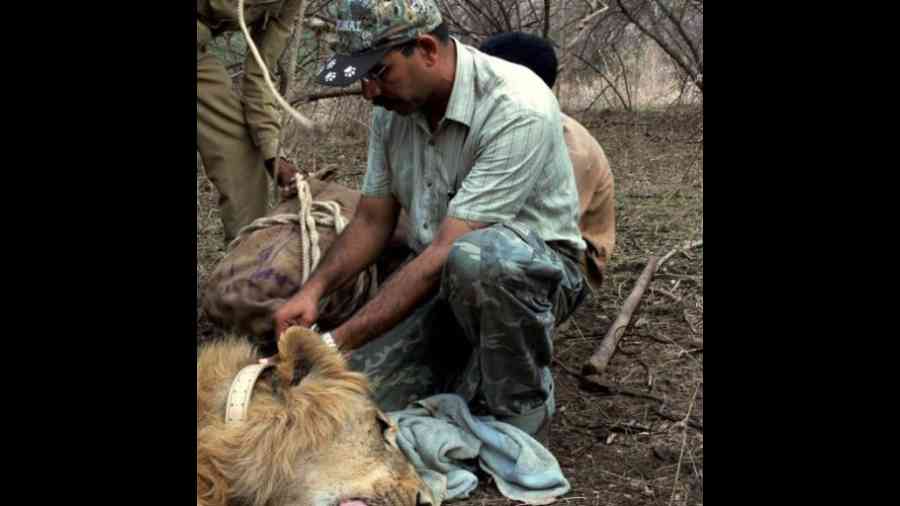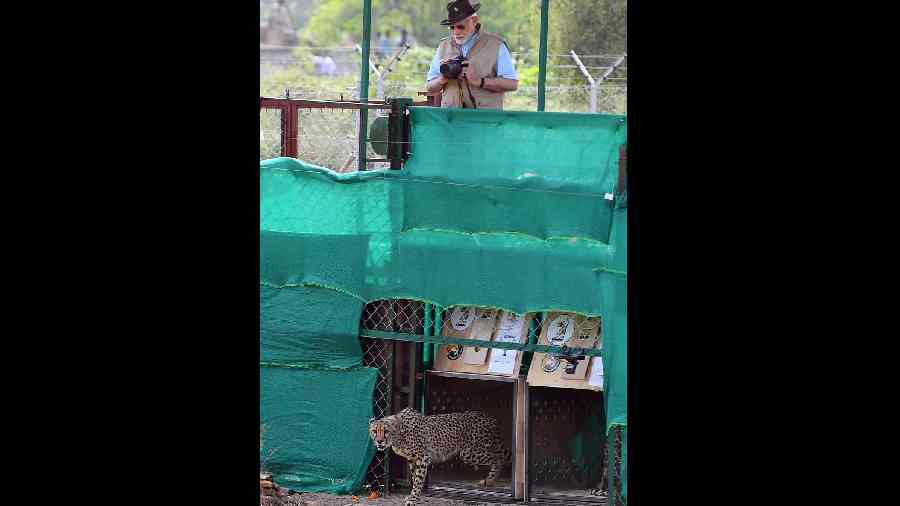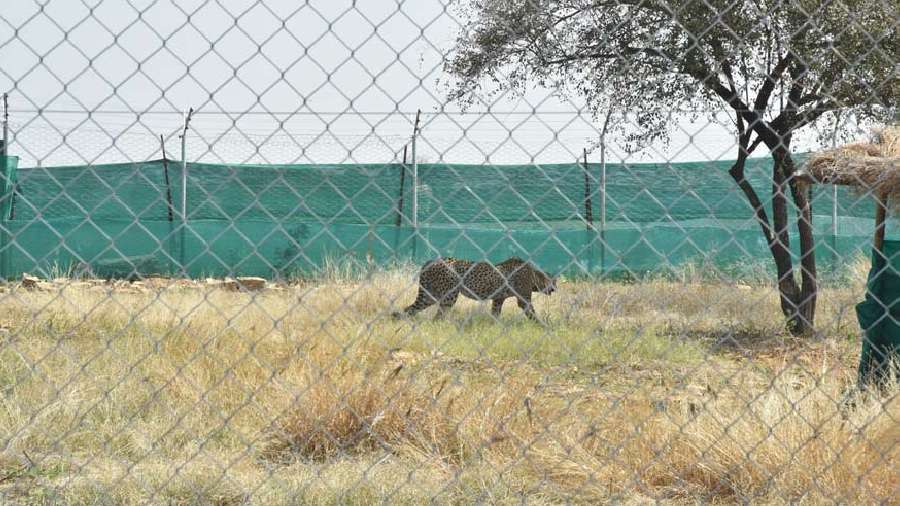The Union environment ministry has curtailed a two-year extension to wildlife biologist Yadvendradev Jhala who played a key role in bringing the cheetahs from Africa to India but has also long advocated for a second home for Gir lions outside Gujarat.
Jhala received the letter truncating his extension up to February 28, 2023, only hours before close-of-day Tuesday, but he’d sensed “something amiss” months ago when he was ushered away from a photo-op with Prime Minister Narendra Modi the day the cheetahs arrived.
The ministry had earlier given Jhala, a senior conservation scientist and the dean at the Wildlife Institute of India (WII), Dehradun, a two-year extension up to February 28, 2024.
Jhala, who has supervised research on the Indian wolf, the Asiatic lion in Gir, and the ecology of tigers in Kanha, Ranthambore and the Sunderbans over three decades at the WII, was most recently the lead scientist for the environment ministry’s efforts to reintroduce the cheetah into India.
The ministry had on September 17, 2022, released eight cheetahs — three male and five female — from Namibia into the Kuno National Park in Madhya Pradesh as part of a project to reintroduce into India the only large carnivore that has gone extinct since the country’s independence.
Kuno received 12 more cheetahs from South Africa last month and the ministry said it hoped to receive a dozen cheetahs annually from South Africa over the next 8 to 10 years. But sections of conservation scientists have questioned the efforts to reintroduce the cheetahs into Kuno, saying the park in Madhya Pradesh had originally been prepared — cleared of humans and stocked with prey — for lions from Gir and not for cheetahs from Africa.

Yadvendradev Jhala
Jhala is also among scientists who believe some of the Gir lions ideally should be moved into a second home because the concentration of all lions in a single site could put the population at risk. But Jhala himself had helped script the cheetah reintroduction project, pragmatism driving his efforts.
“Kuno was a ready site. Yes, the lions too could have got a second home in Kuno, but there was no political will to move the lions from Gujarat,” Jhala said.
“In these circumstances, when a decision was taken to reintroduce the cheetahs, Kuno was prepared.” “As conservation scientists, we have to work with governments. The decision whether to bring lions or cheetahs to Kuno was not entirely made by wildlife scientists,” Jhala said.
He said he had no idea why his two-year extension announced last year was truncated but he’d sensed something amiss on the day he flew in with the first set of cheetahs from Namibia into Kuno.
As Jhala jumped out of the helicopter ferrying the cheetahs, he found himself being ushered away from a photo-op with Prime Minister Modi who was in Kuno to release the cheetahs into the park.
Others in the helicopter, he said, got to meet Modi. Jhala said he has no idea how or what he might have done or said that might have annoyed anyone in the ministry or government.
Unlike some scientists who have questioned the plan to reintroduce cheetahs into Kuno, Jhala believes the cheetahs’ arrival need not pose a barrier to giving the lions a second home. “The lions could still be brought into Kuno — cheetahs have lived alongside lions in Africa,” he said.
Scientists estimate Gujarat currently has around 700 lions and believe a concentrated population makes them vulnerable to infections.
In 2018,21 Gir lions had died from canine distemper virus, a deadly virus that had wiped out nearly a third of lions in Tanzania’s Serengeti in 1994.
Eight wildlife scientists had last October expressed concern in the research journal Nature Ecology and Evolution that India’s cheetah reintroduction plan hinged on an “unsubstantiated claim” that the country had sufficient and suitable space for cheetahs.
But Jhala and others involved in the reintroduction responded in the same journal last week, defending the project and asserting that India has 100,000sqkm of legally protected wildlife reserves within the historical range of the cheetah in India that could potentially accommodate breeding populations.











